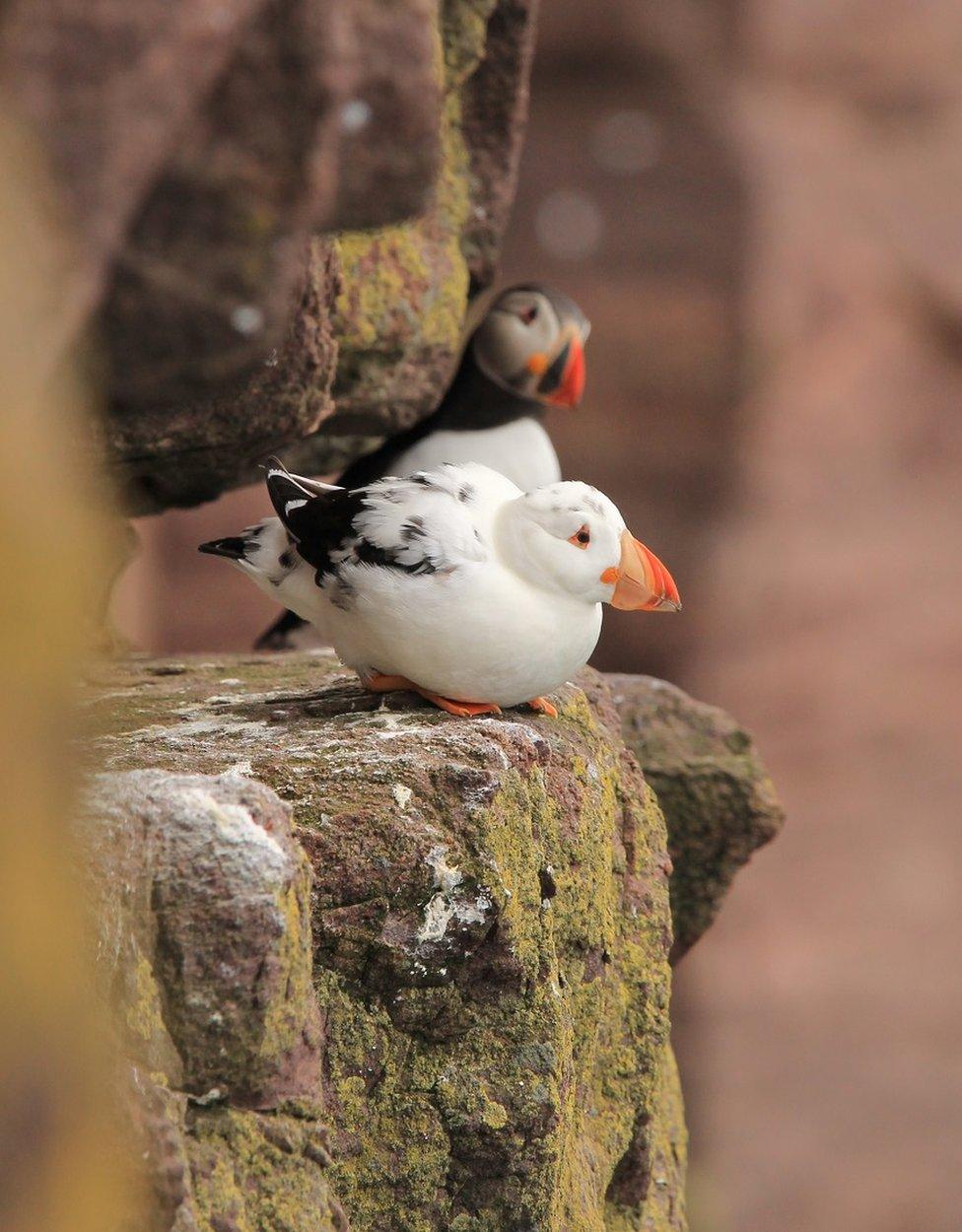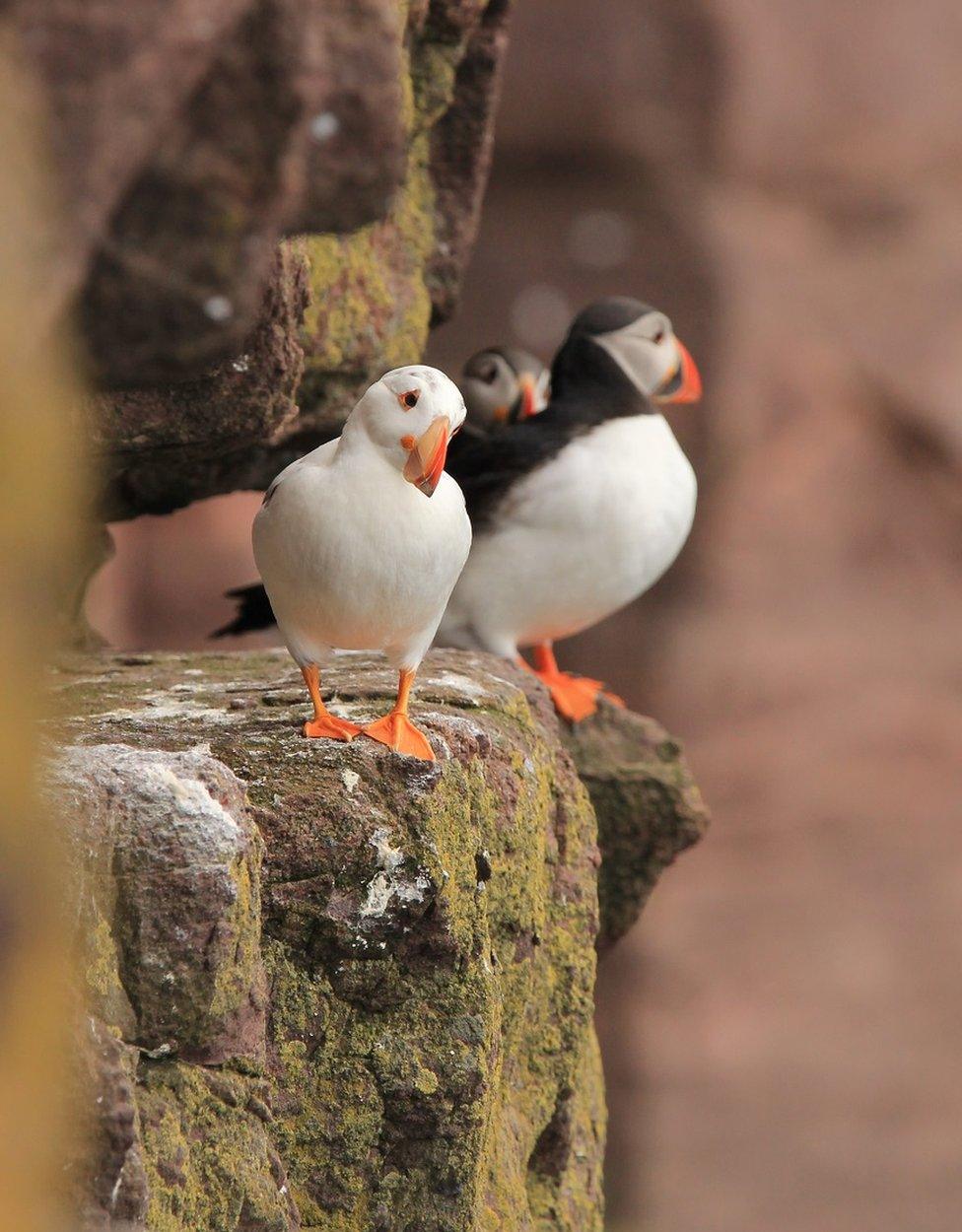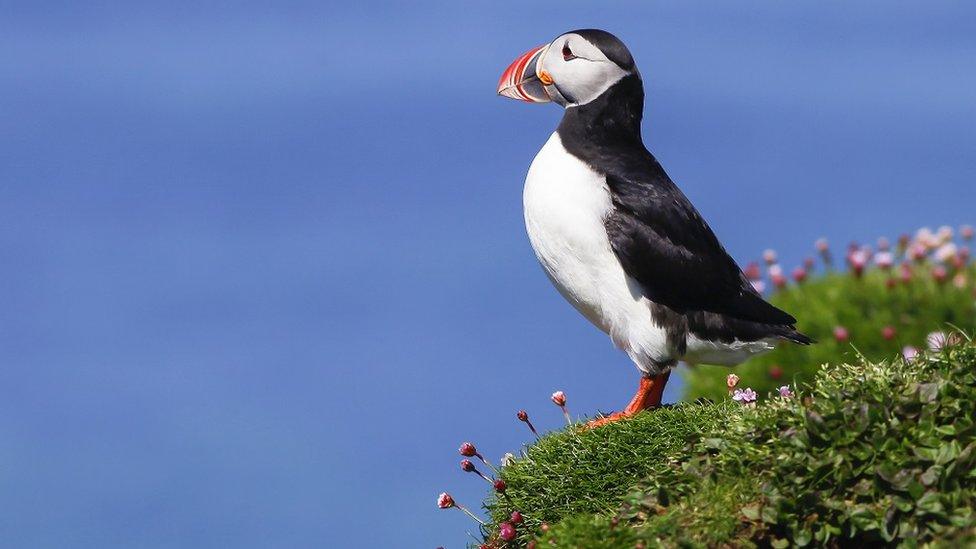Rare white puffin spotted on Scottish island
- Published
The bird's lack of pigmentation is caused by a genetic condition called leucism
A rare white puffin has been spotted on a small island off the Sutherland coast in the Highlands.
The Scottish Wildlife Trust (SWT) said the bird was first seen on Handa Island in mid-June by seabird fieldworker Dora Hamilton.
The young puffin has only a few black feathers and its bill is largely orange.
SWT said the bird's lack of pigmentation was caused by a genetic condition called leucism.
The trust manages the island as a wildlife reserve.


Handa wildlife ranger Erika Faggiani said: "When you live and work on Handa you are surrounded by amazing wildlife all the time, but this leucistic puffin is one of the most unusual things I've seen in my three seasons on the island.
"This is a very rare sighting.
"There are only a small number of reports of leucism at seabird colonies around the UK, including one puffin which bred on Handa in 2018 and 2019 which had light brown feathers instead of black.
Atlantic puffins spend most of the year at sea and come ashore in spring to breed, nesting in cliff-top burrows.


On Handa Island a small breeding population of puffins is bolstered later in the summer by hundreds of non-breeding birds.
SWT said despite the nickname "clowns of the sea", puffins are agile birds that can fly up to 55mph, beating their wings 400 times a minute.

Atlantic puffins are listed as a species vulnerable to extinction
They can also dive for up to one minute at a time, pushing through the water with their wings as they hunt for small fish.
Atlantic puffins are listed by the International Union for Conservation of Nature as vulnerable to extinction.
SWT said: "They face a number of threats including a dramatic decline in sand eels, one of their most important sources of food."
All images subject to copyright.